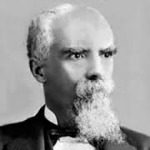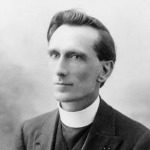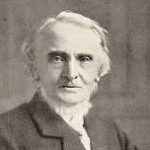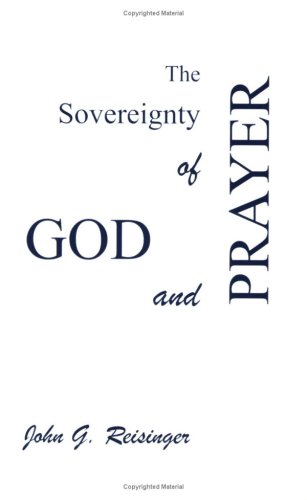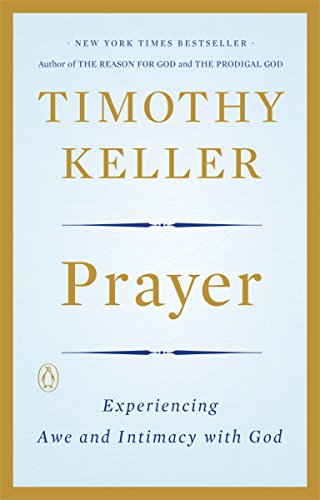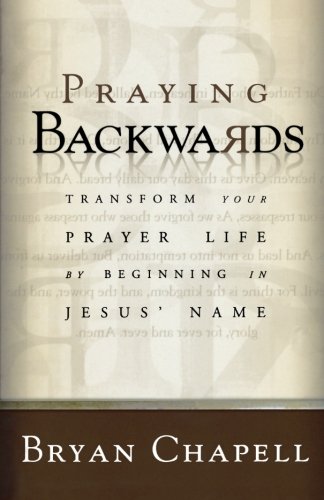Quotes about Prayer-Effectiveness
You shall find this to be God’s usual course; not to give His children the taste of His delights till they begin to perspire in seeking after them.
If we are to cultivate habits of private prayer and devotion that will weather the storms and remain constant in crisis, our objective must be something larger and greater than our personal preoccupations and longing for self-fulfillment.
Made For His Pleasure, Moody Press, 1996, p. 49. Get this book!
For the development of a meaningful prayer life falters not so much because of a lack of zeal as because of a lack of strategy. The simple acronym “ACTS” may prove to be as helpful as any. “A” stands for adoration, “C” for confession, “T” for thanksgiving, and “S” for supplication.
Made For His Pleasure, Moody Press, 1996, p. 55. Get this book!
Those who know God the best are the richest and most powerful in prayer. Little acquaintance with God, and strangeness and coldness to Him, make prayer a rare and feeble thing.
Do not pry for easy lives; pray to be stronger men. Do not pray for tasks equal to your powers; pray for powers equal to your tasks. Then the doing of your work shall be not miracle, but you shall be a miracle. Every day you shall wonder at yourself, at the riches of life which has come to you by the grace of God.
God hears no more than the heart speaks; and if the heart be dumb, God will certainly be deaf.
When thou prayest, rather let thy heart be without words than thy words be without heart.
A Puritan Golden Treasury, compiled by I.D.E. Thomas, by permission of Banner of Truth, Carlisle, PA. 2000, p. 215.
Prayer is the product of [our] passion for people… Unaffected fervency in prayer is not whipped-up emotionalism but the overflow of [our] love for brothers and sisters in Christ Jesus. That means that if we are to improve our praying, we must strengthen our loving. As we grow in disciplined, self-sacrificing love, so we will grow in intercessory prayer. Superficially fervent prayers devoid of such love are finally phony, hollow, shallow.
A Call to Spiritual Reformation, Baker, 1992, p. 85. Get this book!
A season of silence is the best preparation for speech with God.
Our prayers are heard, not because we are in earnest, not because we suffer, but because Jesus suffered.
If you have never felt your soul poured out before the Lord with a consequent exhaustion, it is doubtful whether you have advanced far in the school of prayer.
The Shadow of the Cross – Studies in Self-Denial, 1981, p. 73-74, by permission Banner of Truth, Carlisle, PA.
O God, make us desperate, and grant us faith and boldness to approach Your throne and make our petitions known, knowing that in doing we link arms with Omnipotence and become instruments of Your eternal purposes being fulfilled on this earth.
There is no way that Christians, in a private capacity, can do so much to promote the work of God and advance the kingdom of Christ as by prayer.
When thou prayest before others, observe on what thou bestowest thy chief care and zeal, whether in the externals or internals of prayer, that which is exposed to the eye and ear of men, or that which should be prepared for the eye and ear of God; the devout posture of thy body, or the inward devotion of thy soul; the pomp of thy words or the power of thy faith; the agitation of thy bodily spirits in the vehemency of thy voice, or the fervency of thy spirit in heartbreaking affections. These inward workings of the soul in prayer, are the very soul of prayer.
A Puritan Golden Treasury, compiled by I.D.E. Thomas, by permission of Banner of Truth, Carlisle, PA. 2000, p. 214.
Pray often rather than very long at a time. It is hard to be very long in prayer, and not slacken in our affections.
A Puritan Golden Treasury, compiled by I.D.E. Thomas, by permission of Banner of Truth, Carlisle, PA. 2000, p. 215.
When you begin to pray, use such expressions of the attributes of God as will make you sensible of His greatness and power.
Did any of you, parents, ever hear your child wake from sleep with some panic fear and shriek the mother’s name through the darkness? Was not that a more powerful appeal than all words? And, depend upon it, that the soul which cries aloud on God, “the God and Father of our Lord Jesus Christ,” though it have “no language but a cry,” will never call in vain.
Learn that urgency in prayer does not so much consist in vehement pleading, as in vehement believing. He that believes most the love and power of Jesus will obtain the most in prayer.
Prove the faithfulness of God by carrying your every want to Him. Only maintain an upright heart. But if you live in sin and if you willfully and habitually do things which you know are contrary to the will of God, then you cannot expect Him to hear you (Ps. 66:18-19).
The Autobiography of George Muller, 1984, p. 131. All quotations taken from books published by Whitaker House are used with permission of the publisher. Whitaker House books are available at Christian bookstores everywhere. Get this book!
Faith in a prayer-hearing God will make a prayer-loving Christian.
Could it be that many of our problems with prayer and much of our weakness in prayer come from the fact that we are not all on active duty, and yet we still try to use the transmitter? We have taken a wartime walkie-talkie and tried to turn it into a civilian intercom to call the servants for another cushion in the den… We see repeatedly in Scripture (Mt. 9:38; Lk. 21:34-36; Rom. 15:30-31; Eph. 6:12, 17-19; Col. 4:3; 2 Thes. 3:1) that prayer is a walkie-talkie for warfare, not a domestic intercom for increasing our conveniences.
Desiring God, 1996, p. 152, Used by Permission, www.desiringGod.org. Get this book!
How wonderful a means is prayer. The cry of a worm enters the ears of the Lord of Sabaoth, and He sends deliverance.
A saint is to put forth his faith in prayer, and afterwards follow his prayer with faith.
A Puritan Golden Treasury, compiled by I.D.E. Thomas, by permission of Banner of Truth, Carlisle, PA. 2000, p. 220.
Principles of Prayer:
1. We must be in fellowship with God: Reconciled to God through faith in our Lord Jesus Christ.
2. We must be obedient to God: By putting away sin, by maintaining right relationships with others, and by striving to abide in Christ.
3. We must depend upon the Lord Jesus Christ and His work on our behalf: We pray in His name.
4. We must exercise faith: Believing prayer has the assurance that we may receive beyond all our asking.
5. We must be ready for action, for faith and works go together: Having prayed, we must be the instruments on occasions by means of which God answers our prayers.
6. We must honestly desire God’s will to be done and His name to be glorified.
7. We must pray with sincerity: God has no time for hypocrites who make a lot of show without reality in their hearts, but He promises to be near those who call upon Him in truth.
Fear not because your prayer is stammering, your words feeble, and your language poor. Jesus can understand you.
Both our Lord and His bondslave Paul made clear that true prayer is not dreamy reverie. “All vital praying makes a drain on a man’s vitality. True intercession is a sacrifice, a bleeding sacrifice,” wrote J.H. Jowett. Jesus performed miracles without a sign of outward strain, but “He offered up prayers and petitions with loud cries and tears” (Hebrews 5:7).
Spiritual Leadership, Moody Publishers, 1967, p. 87. Get this book!
When we are in prosperity our prayers come from our lips; and therefore the Lord is forced to cast us down, that our prayers may come from our hearts, and that our senses may be wakened from the security in which they are lying.
Prayer becomes a natural reflex like breathing. We don’t need to search for prayer content. We just need to love the Lord by learning His word and love others in the church in an intimate way. In following the two greatest commandments, we’ll have the knowledge we need to pray appropriately. In our love for the Lord we will naturally have a desire to speak continually with Him and in our love for others we know the best thing we can do for them is pray. You see, prayer is birthed not from duty, but from relationship – first love to God and then love to others.
Prayer is yearning to see not my will, but God’s will done. Prayer is about aligning myself with Him. Prayer is about knowing that God has ordained all things – not just the end, but also the means by which it comes about. And it’s about knowing that my prayers are part of those means.
Application of the “Lord’s Prayer,” Luke 11:5-13, April 7, 2019.|Application of the “Lord’s Prayer,” Luke 11:5-13, April 7, 2019.
We put off all worry (Philippians 4:6) by bringing everything to God in prayer with a heart of thanksgiving. Could Paul have made his point any clearer? He uses three terms for the same activity in this verse: “Prayer,” “Supplication,” and “Requests made known to God.” Here is the solution to the sin we all struggle with: Be anxious for nothing, prayer about everything. Or put another way, instead of taking your troubling matters in your own impotent hands, place your matters in God’s omnipotent hands. Worry is a preoccupation with yourself. Prayer is a preoccupation with God. Which preoccupation will bring you the greatest joy (Philippians 4:4)? Which one will bring you the greatest peace (Philippians 4:7)?
Only the prayer which comes from our heart can get to God’s heart.
Prayer requires effort. When we pray for people, we focus our thoughts on them; we take their burdens upon ourselves; we intercede before God for them; we sacrifice our time for them; we commit ourselves to their wellbeing. We demonstrate true care and compassion.
Leading With Love, Lewis and Roth, 2006, p. 11, Used by Permission. Get this book!
Have you noticed how much praying for revival has been going on of late – and how little revival has resulted? I believe the problem is that we have been trying to substitute praying for obeying, and it simply will not work. To pray for revival while ignoring the plain precept laid down in Scripture is to waste a lot of words and get nothing for our trouble. Prayer will become effective when we stop using it as a substitute for obedience.
When we become too glib in prayer we are most surely talking to ourselves.
To an effectual prayer there must concur the intention of the mind and the affections of the heart; else it is not praying but parroting.
A Puritan Golden Treasury, compiled by I.D.E. Thomas, by permission of Banner of Truth, Carlisle, PA. 2000, p. 215.
One day George Mueller began praying for five of his friends. After many months, one of them came to the Lord. Ten years later, two others were converted. It took 25 years before the fourth man was saved. Mueller persevered in prayer until his death for the fifth friend, and throughout those 52 years he never gave up hoping that he would accept Christ! His faith was rewarded, for soon after Mueller’s funeral the last one was saved.
Are not our prayers so often ineffective and powerless – and sometimes even prayerless – because we rush unthinkingly and unpreparedly into God’s presence, without realizing the majesty and glory of the God Whom we are approaching, and without reflecting upon the exceeding great riches of His glory in Christ Jesus, which we hope to draw upon?
Prayer is measured, not by time, but by intensity.
The posture in which we pray is immaterial. God will listen whether we kneel, or stand, or sit, or walk, or work.
The best prayer does not seek God’s gifts but the experience of His person.
The angel fetched Peter out of prison, but it was prayer that fetched the angel.
Nine Characteristics of Biblical Prayer:
1. An Understanding of Your Own Insignificance and Sinfulness.
2. The Knowledge that Jesus is Your Only Access to the Father.
3. Adoration for God because of His Character and Attributes.
4. Joyful Praise for God’s Work in Creation and Redemption.
5. Thankfulness for God’s Kindness in Giving Every Good Thing.
6. A Sense of Your Need of Strength to Fight against Specific Sins.
7. Humble Trust as You Ask the Father to Meet Every Need.
8. A Selfless Burden to Pray for Others.
9. A Thirst for Increasing Spiritual Wisdom and Understanding.
Nine Characteristics of Biblical Prayer, Christian Communicators Worldwide, www.CCWtoday.org. Used by Permission.


